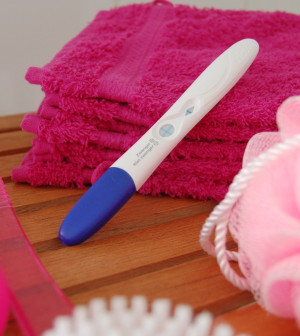- 8 Ways to Increase Dopamine Naturally
- 7 Best Breads for Maintaining Stable Blood Sugar
- Gelatin vs. Collagen: Which is Best for Skin, Nails, and Joints?
- The Long-Term Effects of Daily Turmeric Supplements on Liver Health
- Could Your Grocery Store Meat Be Causing Recurring UTIs?
- Are You Making This Expensive Thermostat Error This Winter?
- Recognizing the Signs of Hypothyroidism
- 10 Strategies to Overcome Insomnia
- Could Artificial Sweeteners Be Aging the Brain Faster?
- Techniques for Soothing Your Nervous System
Sports for Teens Are Beneficial — Up to a Point


Too much time spent playing sports can be as bad as too little time for teens, a new study finds.
Swiss researchers found the greatest benefit seemed to be associated with 14 hours of sports a week. That’s higher than European, American and World Health Organization (WHO) recommendations of at least seven hours of physical activity a week for adolescents.
Researchers Arnaud Merglen, at the University of Lausanne, and colleagues reported their findings online Nov. 20 in the Archives of Disease in Childhood.
They asked more than 1,200 participants aged 16 to 20 in Switzerland about their levels of sports participation. In addition, they assessed the participants’ physical and mental well-being using a WHO scale of zero to 25. Scoring below 13 indicated poor well-being.
Participants were evenly split between males and females and their average age was just under 18. About 9 percent were overweight or obese. The average well-being score for all the teens was 17.
Weekly sports participation of zero to 3.5 hours was considered low and seen in 35 percent of teens. Between 3.6 and 10.5 hours was considered average and seen in 41.5 percent of participants. High levels of 10.6 to 17.5 hours were reported by 18.5 percent of participants, and very high levels of more than 17.5 hours were reported by 5 percent of tens.
Teens in the low and very high groups were more than twice as likely as those in the average group to score below 13 on the well-being scale, according to a journal news release.
Peak scores of well-being were seen among teens who did about 14 hours of sports a week. However, the protective effect was reversed after more than 17.5 hours of sports a week.
Regular exercise is known to provide mental and physical benefits by reducing stress and anxiety, and by boosting self-esteem and brain power, the researchers said.
Although doubling the recommended weekly time spent playing sports to 14 hours seems to be good for the mental and physical health of teens, going beyond this seems to be harmful, the researchers concluded.
More information
The American Council on Exercise has more on teen fitness.
Source: HealthDay
Copyright © 2026 HealthDay. All rights reserved.










